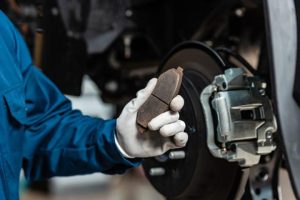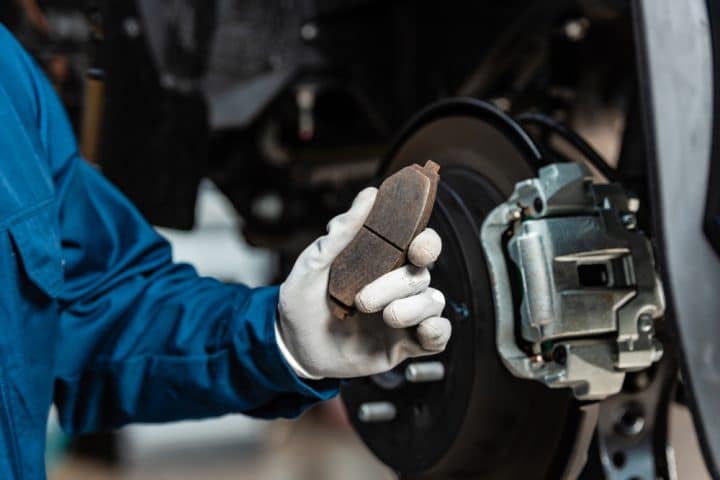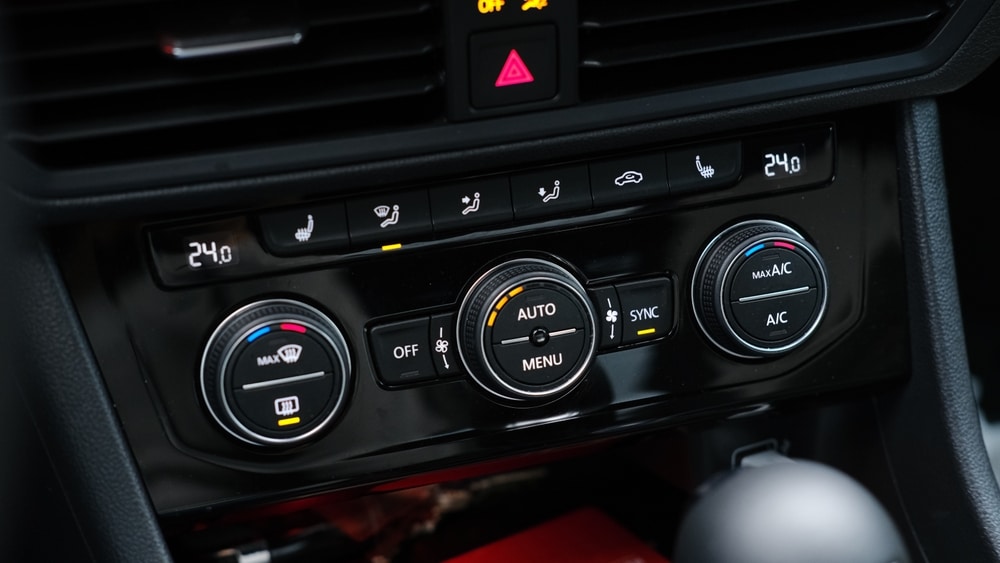Mercedes Brake Pads
When it comes to your Mercedes-Benz brake system, you should always have a ‘safety first’ approach. Regular maintenance and service will ensure your brakes remain in tip-top condition – keeping you and other road users safe from harm. In the event of an accident, your brake system could be the difference in your ability to control your vehicle and lessen any damage, so keeping things up to scratch is vital.
In this blog post, we’ll take a look at everything you’ll need to fully understand your brake pads. We’ll cover all the essential details, when to replace your brake pads, and the hazards associated with damaged brakes. Not only that, but we’ll hear some expert recommendations from our technicians at RS Autotechnik on the best brake pads for your Mercedes-Benz.
Ok, let’s begin…

Mercedes Brake Pads: How Do They Work?
Mercedes-Benz brake pads are crucial to the efficient functioning of the braking system. In order to slow down or stop the vehicle, these essential components exert pressure on the brake disc, bringing you to a safe stop.
When you press on the brake pedal, the brake pads generate heat and friction, which creates the necessary braking force to stop the wheels. However, brake pads wear out over time, which reduces braking performance and can compromise safety. Therefore, for optimal performance and to maintain optimum handling, it is highly recommended to have a qualified technician inspect brake pads regularly.
Our Mercedes-Benz specialists at RS Autotechnik offer top-notch brake inspections and replacement services. Whether you are experiencing issues or would just like your brake pads to be given the ‘once over’, contact us. We’d be happy to take a look.
The Pitfalls of Worn-Out Brake Pads
Maintaining the braking system regularly is crucial not just for your safety, but also for the safety of others.
Without regular maintenance, metal-on-metal grinding can occur, which can lead to disc damage and excessive heat in the brakes. This could then lead to warping and cracking, which could land you with a costly repair.
Here at RS Autotechnik, we would recommend getting your Mercedes-Benz brakes inspected annually or every 10,000 miles (whichever comes sooner), giving you peace of mind that your brakes won’t fail you when you need them the most. If you notice noise coming from your brakes, heavy vibrations, your brakes taking longer than expected to slow down, or find your vehicle pulling to one side – these are all signs that your brakes could be worn out. Also, if your brake light shows up on your dashboard, it’s time to take action.
For trustworthy brake pad inspection or replacement, contact RS Autotechnik today.

What Can Affect the Lifespan of your Mercedes Brake Pads?
There are many factors that can affect the longevity of your vehicle’s brakes. These include your driving patterns and the type of brake pads you use. When you brake harshly, frequently stop and start, or drive in the city, your brakes may need to be replaced sooner.
Regular brake pads typically last between 15,000 (front pads)and 50,000 miles (rear pads), but the specific time/distance they last very much depends upon the vehicle and your driving style.
If you want a more precise brake service schedule, refer to your Mercedes-Benz owner’s manual or contact a member of our team here at RS Autotechnik, who will be happy to help.
Whenever you need assistance choosing the appropriate brake pads for your Mercedes-Benz, don’t hesitate to get in touch.
The Difference Between Front and Rear Brake Pads for Your Mercedes
Front brake pads wear more quickly than those at the rear, because of their weight and force they experience. You don’t need to replace both front and rear brake pads simultaneously, but it is crucial to inspect the rear brake pads and discs if you are replacing front ones. By doing this you can rest assured that your Mercedes-Benz can brake safely at any time.
During our routine maintenance checks, our technicians at RS Autotechnik inspect both the front and rear brake pads, and can advise you on the best course of action, based on what they see.
Getting The Right Brake Pads for Your Mercedes
Brake pads typically come in three types. These are organic, metallic, and semi-metallic brake pads. As a leading brand in luxury cars, it’s not unusual for Mercedes to use ceramic brake pads over conventional ones.
Here’s a brief look at the differences between them:
Organic Brake Pads: Made from materials such as rubber, glass, and resin, these brake pads produce less noise and dust than their counterparts. However, they may not last as long or be as effective in high-performance driving conditions.
Metallic Brake Pads: These brake pads are made of copper, metal fibres, and graphite. They are very durable and can withstand high temperatures, but can be noisier and produce more dust than other types of brake pads.
Semi-Metallic Brake Pads: Organic and metallic materials are combined in these brake pads. They rate well when it comes to their performance and durability, but also generate a lot of dust and noise.
Ceramic Brake Pads: Ceramic brake pads are high-performance, superior brake pads. Made of ceramic materials, their benefits include improved braking performance, reduced noise and dust, longer lifespan, and resistance to brake fade. Put simply, they offer superior performance and durability and make a sound investment.
Different materials have advantages and disadvantages, so be sure to review the manufacturer’s guidelines and seek advice from an expert. Our technicians at RS Autotechnik have extensive experience working with Mercedes-Benz brake systems and are able to recommend the right brake pads for your vehicle.
Why don’t you give us a call and book an appointment today?
Considering Replacing Mercedes Brake Pads Yourself?
Replacement of brake pads requires specialised expertise and tools due to the intricate and complicated nature of the braking system, so we highly recommend seeking professional assistance. You could potentially cause further complications and compromise the safety of other road users if you attempt a DIY job.
When it comes to brake maintenance, it is essential to seek assistance from our experts at RS Autotechnik.
What’s The Cost To Replace Mercedes Brake Pads?
Several factors can affect the cost of replacing Mercedes-Benz brake pads, including the model and year of your vehicle, and the type of brake pads most suitable. However, at RS Autotechnik, we provide our clients with better-than-dealer value and service so it’s definitely worth getting booked in for your individualised quotation. For the best value and service, our skilled technicians will provide a comprehensive estimate detailing all available options, individual to the make and model of your Mercedes-Benz.
Other Things To Consider
It’s not only brake pads which need looking after. There are several other components to your vehicle’s braking system that will need regular maintenance. Don’t forget the brake pedals, brake lines, master cylinders, brake callipers, brake pads, brake discs, and brake fluid. Brake wear can be affected by several factors, including driving behaviour, terrain, corrosion, and low-quality brake pads.
We recommend that you have your fluid inspected every 25,000 miles.
Additionally, in order to stay safe on the road, you must consider the effectiveness of your anti-lock braking system. If a fault is detected and your ABS warning light comes on, we can investigate that for you.
At RS Autotechnik, we can help if you experience any brake system problems or just want to keep on top of their maintenance. Our Mercedes-Benz experts can diagnose and repair any problem in a timely manner, so you can drive safely and with confidence. Make an appointment today by contacting our helpful reception team.



